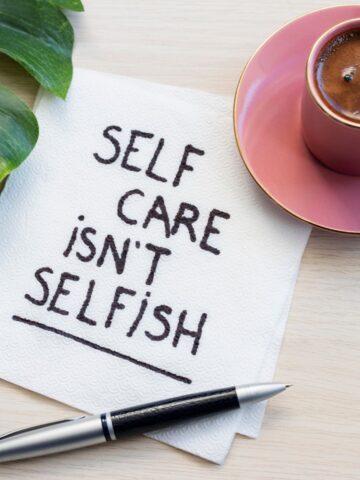Most of us at one time or another have been in debt. Either with credit cards, hospital bills, your mortgage, even an addiction of some type can temporarily create debt. If you feel like you are financially drowning than keep reading.
For more Personal Finance Articles and Budgeting Tips Read Here.
It doesn’t matter if you have a successful job, if you make 6 figures, or if you live on one income and are just managing week to week.
When your finances seem to be headed down a wrong path and your debt is getting out of control, be wise and take stock of the direction you are going in.
There are steps you can take to prevent you from getting into further debt and to help you eliminate some of what you are currently dealing with. Use these tips to help you begin moving in the right direction financially.

Cut Up Your Credit Cards
If you have a hard time saying no to purchases, take your credit card out of your purse or wallet and put it into a safe place at home, or better yet, cut them up. Make a decision to only use cash for now.
This one step can be a life-changing tip. This alone will help force you to be more cautious in your spending. If you choose to pay cash only, you will probably choose not to make that extra purchase.
Cancel Any Retail Credit Cards
Retail credit cards typically have high-interest rates. This would consist of department credit cards. Department stores are notorious for offering incentives for using their cards for purchase.
They offer discounts, or 6 months no interest, etc.
It is also difficult to keep from spending when you feel like you have several options as to where the money will come from.
Get rid of these cards and keep only one main credit card, which is hopefully the one you have taken from your wallet and placed in a safe place at home.
Pay Back Your Debt as Quickly as Possible
If you have a balance on any credit card, be sure to pay at least the minimum monthly amount each month. Do your best to pay back your debt, and as quickly as you can manage.
By paying off your debt, you will eliminate some of the interest that continues to build as time passes.
Consider a Second Job
If you can work even an extra day per week, it can help you pay back your debt sooner. At the very least, it may give you that extra wiggle room so that you do not get yourself further into debt.
It will take up some of your free time but will be worth the sacrifice in the long run.
Creatively Find as Many Ways to Save as Possible
Look for every way possible to save money. Whether that is by clipping coupons or shopping only during sales, make it work. Find other ways to save in other areas, such as your electricity bill.
Be vigilant about turning lights off when you leave the room, and about unplugging appliances that are not in use, since they continue to drain energy when plugged in.
Take a bagged lunch to work instead of buying fast food. Make a coffee at home before you leave for work instead of stopping at the drive-thru on the way there. Stop spending on unnecessary purchases in order to save on items you don’t really need anyhow.
Learning to be frugal takes a little bit of preparation, but gets easier as time goes on. It might seem like a chore at first, but the benefits are numerous.
You will become a more creative person and save your hard-earned money. What better benefits could there possibly be than that? You can stop drowning in debt and change your future.

4 Quick Things You Can Do Today to Get Your Debt Under Control
Set some time to get with your spouse and create a budget and get it on paper so you can see it in writing. Work on this until you have a plan, to pay off debt, live comfortably and set up some side hustle money to get ahead of your spending.
You must start with a small emergency fund for one-time emergencies, such as an appliance breaking down or the car needing service. Then move up to a 6-month fund in case you get a new job or someone gets ill in the family.
Change your mindset and work on it daily.
Readers are Leaders. Become the leader of your family finances by getting educated.
*This post may contain affiliate links. If you make a purchase, I get a small commission. Please see my disclosure policy for details
According to Value Penguin, the average American household credit debt for balance carrying cards is approx $9700.00 and the American Household Debt is $5700.00.
The total outstanding U.S. consumer debt is $3.9 Trillion and total revolving debt is $1.03 Trillion and 41% of households carry some type of credit card debt.
Now that you are working on your debt and have a budget in place, let me know what your struggles are with money in the comments.
- Resources to start working on your debt-free journey:
- Total Money Makeover by Dave Ramsey
- Build Your Credit From Scratch
- How to Start a Sinking Fund
- Save Money by Planning Ahead for Big Purchases.





Valenica Abbott says
Lucky for me, the moment I realized I had debt (yeah, signing the papers with the bank didn’t light up any emergency light bulbs in my head…) and actually had to pay it off “or else”, I became the most frugal person I know! Then I met my other half, also in debt, so we at least had eachother’s support while paying the bills